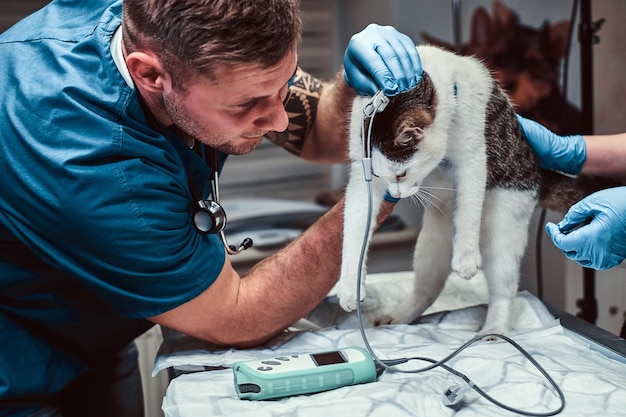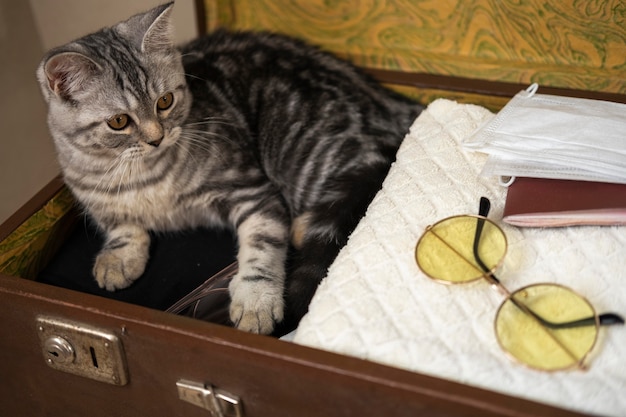What to Expect From Routine Pet Surgery in Marysville


What to Expect From Routine Pet Surgery in Marysville
When your veterinarian recommends a routine pet surgery—such as a spay, neuter, or lump removal—it’s normal to feel a mix of concern and curiosity. You want the best for your furry companion and may wonder what the process actually looks like, how your pet’s safety is ensured, and what you can do to help them recover comfortably at home. At Marysville Veterinary, located at 4010 136th St NE, Marysville, WA 98271, our experienced team of veterinarians is dedicated to making every step of your pet’s surgical journey as safe and stress-free as possible.
In this blog, we’ll walk you through everything you need to know about pet surgery in Marysville, from initial preparation and what happens on the day of the procedure to aftercare and ongoing support. Whether you’re considering routine surgical procedures for your pet or looking for a trusted "vet near me," you’ll find helpful information that applies to common surgeries performed at our hospital. We'll also discuss how Marysville Veterinary supports pets and their families throughout Marysville and surrounding communities.
Let’s start by understanding how to recognize when your pet may need a routine surgery.
Recognizing When Your Pet May Need Routine Surgery in Marysville
Most pet owners first hear about routine pet surgery during a wellness exam or when a specific concern arises. Routine procedures, including spay, neuter, and lump removals, are some of the most common types of pet surgery in Marysville. Your veterinarian may recommend surgery for several reasons; for instance, to prevent health issues, address current problems, or improve overall quality of life.
Key indicators that your pet may need a routine surgery include being at the appropriate age for a spay or neuter, having a growth or lump that has been noticed during grooming or play, or showing signs of discomfort or behavioral changes. Other common situations involve dental issues requiring extraction or a persistent wound that does not heal as expected. In many cases, these procedures are planned during routine wellness visits, highlighting the importance of regular veterinary care.
Some pet owners may feel anxious at the thought of surgery, especially if their pet is acting normally. However, veterinarians often recommend routine surgeries as preventive care, which can help avoid more serious health concerns in the future. If you’re searching for "routine pet surgery near me" or "veterinary services near me," know that early intervention can make a significant difference.
Why Do Pets Need Routine Surgery? Understanding the Background
Routine pet surgery in Marysville is performed for a variety of health and wellness reasons. Spaying and neutering, for example, are recommended not only to prevent unwanted litters but also to decrease the risk of certain cancers, hormone-driven behaviors, and infections like pyometra in females. Lumps and bumps, while often benign, are sometimes removed because they could grow, become irritated, or present a risk of malignancy as your pet ages.
Dental surgeries, such as extractions, are another example of routine procedures that protect your pet from chronic pain or systemic infections. In addition, some pets may need minor wound repairs, hernia corrections, or foreign object removals, all of which fall under the umbrella of routine surgical care handled by general practice veterinarians.
The decision to move forward with surgery is always made with your pet’s best interests in mind. Our veterinary team at Marysville Veterinary will conduct a thorough assessment, including physical examination and diagnostic testing as needed, to ensure your pet is a suitable candidate for anesthesia and surgery. If you’re exploring options for "routine pet surgery in Marysville," rest assured that your veterinarian will guide you through every consideration.
What Happens During Routine Pet Surgery at Marysville Veterinary?
Understanding what takes place on the day of your pet’s surgery can help relieve anxiety and allow you to prepare appropriately. Our process for routine pet surgery in Marysville starts with a pre-surgical appointment, where your pet receives a thorough wellness examination and, in many cases, pre-anesthetic bloodwork. This step is essential for evaluating internal organ function and minimizing risks during anesthesia.
On the morning of surgery, you’ll typically be asked to withhold food for a certain period before arrival; your veterinarian will provide clear instructions based on your pet’s needs. Once admitted, your pet will be greeted by our veterinary team and settled into a comfortable space. We use safe, modern anesthetics and monitoring equipment to track your pet’s heart rate, breathing, and temperature throughout the procedure.
During the surgery itself, whether it’s a spay, neuter, or lump removal, our veterinarians follow strict sterile protocols to minimize infection risk. Procedures are performed with precision, aiming to limit tissue trauma and ensure a smooth recovery. After surgery, pets are closely monitored as they wake up from anesthesia, and pain management is tailored to your pet’s comfort level.
For detailed information about the types of procedures we offer, visit our page on routine surgical procedures for pets at Marysville Veterinary Hospital. If you are considering a spay or neuter for your pet, our specialized spay and neuter services outline what to expect and how these surgeries benefit your companion in the long run.
How to Prepare and What to Expect After Routine Pet Surgery
Preparation plays a crucial role in ensuring a smooth surgical experience. Your veterinary team will provide specific instructions prior to the procedure, including fasting guidelines, medication adjustments, and what to bring on the day of surgery. It’s natural to feel nervous, but open communication with your veterinarian can help ease concerns.
After your pet’s surgery, post-operative care is just as important as the procedure itself. Most pets recover quickly from routine pet surgery in Marysville, but you should expect some drowsiness, mild swelling at the incision site, and possibly a reduced appetite for the first day. At home, you’ll need to limit your pet’s activity, prevent them from licking or chewing the incision, and keep the surgical site clean and dry. Your veterinary team will advise you on pain medications and schedule a follow-up visit to check healing progress.
If your pet is particularly anxious, the comfort of their own familiar environment and favorite bedding can promote a more relaxed recovery. Always observe your pet closely for any concerning changes such as excessive swelling, bleeding, persistent vomiting, or difficulty breathing, and contact your veterinarian if these occur.
Preventing Surgical Complications and Supporting Your Pet’s Healing
While routine pet surgery in Marysville is generally very safe, there are steps you can take to minimize complications and support your pet’s healing. Following all pre- and post-surgery instructions is essential. These include keeping your pet indoors during the initial recovery, monitoring the incision daily for signs of redness or discharge, and administering medication exactly as prescribed.
Nutrition and hydration are also crucial; encourage your pet to eat small, bland meals if their appetite is low, and always provide fresh water. If your pet wears an Elizabethan collar (cone), make sure it stays on until your veterinarian gives the all-clear, even if your pet protests. Regular check-ins with your veterinary team allow us to catch any issues early and provide reassurance throughout the healing process.
Routine pet surgery near me often prompts questions about the risks of anesthesia or long-term effects. At Marysville Veterinary, our team uses modern protocols and advanced monitoring to reduce risk and enhance safety. We are happy to address any question or concern you may have, so you always feel informed and confident in your pet’s care.
When to Seek Veterinary Care for Your Pet’s Surgical Needs
Some pet owners may hesitate to pursue surgery, hoping a condition will resolve on its own. However, delaying necessary procedures can sometimes lead to more complex health problems. If your pet has been recommended for spay, neuter, lump removal, or another routine surgery, it’s best to schedule the procedure in a timely manner.
Seek veterinary care promptly if you notice new lumps or bumps, persistent limping, difficulty eating, changes in urinary or bowel habits, or any wound that does not heal. Additionally, any sudden change in behavior, lethargy, loss of appetite, or signs of pain should be evaluated as soon as possible. Your veterinarian can determine if surgery is needed and guide you through the process.
If you are searching for "veterinarian near me" or "best vet team near me" for expert surgical care, Marysville Veterinary is proud to serve pets and families throughout Marysville and the surrounding communities. We encourage you to schedule an appointment with our experienced veterinary team to discuss your pet’s needs and ensure their ongoing health.
Compassionate Support for Pet Surgery in Marysville: Your Trusted Partner
Routine pet surgery in Marysville is a proactive step toward your companion’s long-term health and happiness. Whether your pet needs a spay, neuter, lump removal, or another procedure, the veterinary professionals at Marysville Veterinary are here to support you at every stage. Our commitment is to provide safe, compassionate care tailored to your pet’s unique needs, while answering your questions with honesty and empathy.
If you’re ready to schedule a surgery or simply want more information about routine surgical procedures for your pet, reach out to our team today. You can call us at (360) 659-7334 or visit our 4010 136th St NE, Marysville, WA 98271 location for a consultation. Our veterinarians are dedicated to making every surgical experience as smooth and stress-free as possible for pets and their families.
For trusted answers from a "vet near me" or to learn more about pet surgery in Marysville, rely on Marysville Veterinary for quality care and ongoing support. Let us help your pet enjoy a healthy, happy life for years to come.
Medical Disclaimer: The information provided in this blog is for educational purposes only and is not a substitute for professional veterinary advice. Always consult your veterinarian for specific guidance regarding your pet’s health or before making decisions about medical care.
References:
- American Veterinary Medical Association , Veterinary Surgery Overview
- American Animal Hospital Association , Anesthesia and Your Pet
If you have questions or are considering routine pet surgery in Marysville, don’t hesitate to contact us—we’re here to help your pet every step of the way.


















